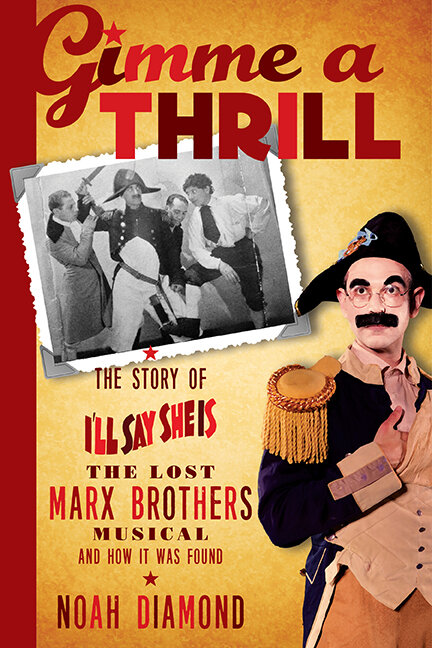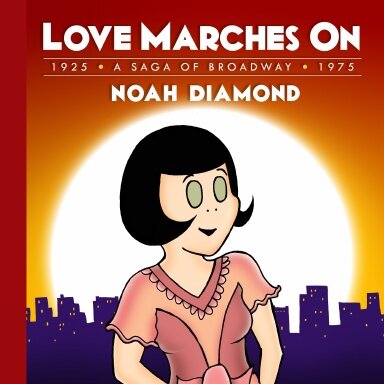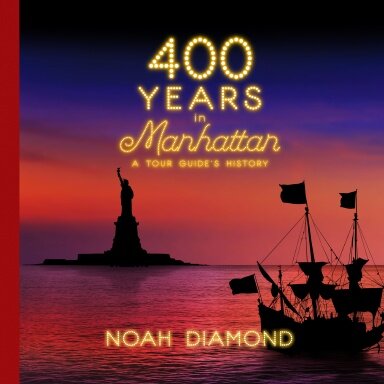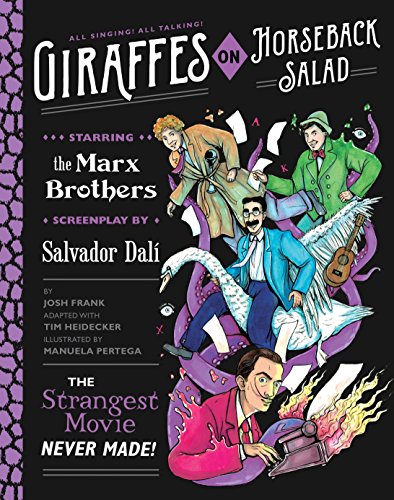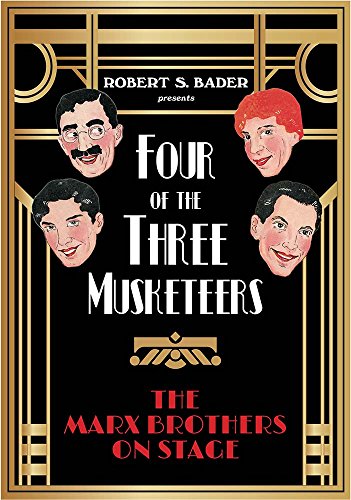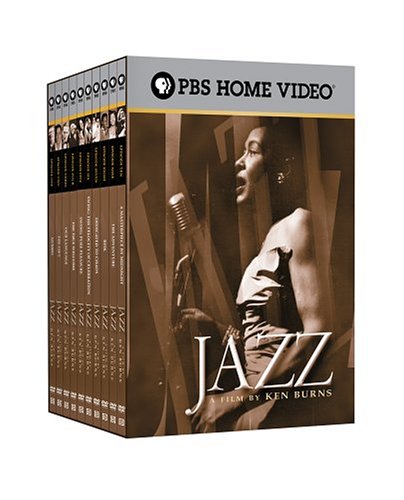
STORE
MY STUFF
Wherever my work is available for sale on the web, you can find it here.
My history of I'll Say She Is covers the original production as well as its reconstruction, through the 2014 revival. For details about the 2016 Off Broadway revival, visit the I’ll Say She Is page.
Love Marches On is a multigenerational saga of Broadway, originally published as a daily comic strip in 2013. The book features the entire run of daily strips and Sunday broadsheets, along with a good deal of supplemental material which expands the story.
Based on our stage show of the same name, the lavish second edition of the 400 Years in Manhattan book is a glossy, full-color volume packed with hundreds of historical images, maps, and photos, along with many original visuals from the show. The book contains the entire text of the 2019 monologue — a history of the world’s most enchanted island, and of my own experience as a New York City tour guide.
Note: The above volumes can also be found on Amazon. The above links are to the publishers’ sites — preferred vendors! But even if don’t buy these books from Amazon, there’s no reason why you can’t post rave reviews of them on Amazon…
Matthew Coniam's excellent That's Me, Groucho! includes my essay "Anatomy of a Moustache," exploring the history of "that careless, brazen, revolutionary black stripe."
Zelda Magazine #12
(Spring 2015)
My article about the original authors of I'll Say She Is, "Bands of Brothers: The Johnstones and the Marxes on Broadway," appears in Zelda #12.
The premiere issue of Spaz Comics, created by Rik Sansone, includes my piece "Teen Mania," which imagines a 1980s teen magazine aimed at fans of vintage comedy.
The second issue of Spaz Comics includes "Penguin Home Invasion," my photographic essay about the time my home was infiltrated by an army of tiny penguins.
Visit the Marxfest Store for merchandise associated with Marxfest, the month-long, city-wide Marx Brothers festival of which I was an organizer and participant in 2014.
MY FRIENDS' STUFF
Here's a selection of available works by some of the brilliant men and women I've been fortunate enough to know in real life.
(Note: Works which appear elsewhere on this page are excluded from this section, even if I'm friends with the authors! And friends, this is a work in progress, ever-evolving, so please forgive me if I've neglected to include your work here -- feel free to scold, shame, and pressure me!)
STUFF I RECOMMEND
A curated selection of my favorite things, available through this website's participation in the Amazon Associates Program.
I add things to this page often, so be sure to check it every five or ten minutes.
THE MARX BROTHERS BOOKSHELF
There have been so many excellent books about the Marx Brothers. The following selection is by no means complete, but these are the Marx books which I love the most, and/or consider the most important and indispensable.
Harpo's beautiful memoir is the best book written by a member of the Marx family, and is indispensable for an understanding of the spirit of the Marxes' experience, if not always strictly reliable on the facts.
Groucho's memoir is elusive, and short on introspection; its title is more insightful than its contents. As with much of Groucho's literary output, the author's concern with being seen as a writer interferes with his gifts. But Groucho and Me is still highly enjoyable required reading.
Groucho's best, funniest, and most revealing writing is to be found in his letters, which were mostly not written for publication. He isn't trying so hard to be impressive here (and in Love, Groucho), with the result that he comes off as far more impressive.
Groucho's letters to Miriam are the very best of the great man in print. No other book gives the reader such a strong sense of meeting the real Groucho; and, not coincidentally, these letters contain the finest prose he ever crafted.
Joe Adamson's masterpiece remains, decades after its publication, the greatest book ever written about the Brothers. The research, groundbreaking in '73, has since been expanded upon by other authors. But Adamson's insight, and the brilliance of his prose, delivers higher and more lasting truths than mere data can ever offer. If you only read one, this is the one.
Simon Louvish, like Joe Adamson, understands that the Marx Brothers are mythic heroes, and that their story is only fully "true" when presented as a poetic saga. Louvish does this beautifully, while weaving in a wealth of research, much of it new when the book was published in '99. The book is an ideal companion to Adamson's, emphasizing the stage years where Adamson's emphasizes the films, and written with comparable literary flair.
The clearest heir to Adamson is Matthew Coniam, whose Annotated Marx Brothers became indispensable the moment it was published. Ostensibly a guide to the more elusive references in the Brothers' films (complete with DVD time codes), the book is more accurately described as a fresh, witty, intellectually vigorous look at subjects whose relevance is decisively renewed in these pages.
Robert Bader's recent opus is a landmark among landmarks. No book can match it for the sheer volume of its research, and even if you've read every other book ever written about the Brothers, this one will tell you a lot you didn't know about their years on stage. It also sheds abundant new light on corners of the Marxes' saga which you only thought you understood. This is the ultimate reference book on the team's early career, and no Marxian bookshelf is complete without it.
And this one is literally a reference book! Glenn Mitchell's erudite and lovingly-assembled alphabetical encyclopedia of Marxiana is best enjoyed not page by page, in order, in a few sittings. It's best enjoyed at random, every day, for the rest of your life!
The controversy surrounding its publication, and Groucho's blue talk throughout the interviews, are beside the point. It's unfortunate that those topics have dominated conversation about the Scrapbook, which is better remembered as an invaluable source of images and interviews.
Groucho and company issued this official "illustrated life" partly in an attempt to eclipse the Scrapbook. The Phile is delightful, full of priceless images and recollections. But it's a self-conscious exercise in legend-maintenance, and it feels less vital.
Steve Stoliar's beautiful memoir offers unparalleled insight into Groucho's late period, and a fan's-eye view unique among Marx books.
The first critical study of Groucho's solo career is written with wit, elegance, and deep insight into topics not explored elsewhere. The appendices include Coniam's profound encore, "The Groucho Marx Theory of Creativity" -- a landmark of Marxian thought.
Hector Arce's semi-authorized Groucho biography is an underappreciated volume, unfortunately out of print, but superior to the Groucho biographies which followed it. A great many revelations and insights which are often attributed to later scribes actually originate in Arce's pages. He went on to collaborate with Groucho on The Secret Word is Groucho and The Groucho Phile.
Maxine Marx's memoir of her father is sweet and affectionate. It earns its place here largely by being the only book devoted expressly to Chico, the most enigmatic of the Marx Brothers. Like many of these memoirs, it's more reliable as a source of impressions and insights than for biographical data.
Why not buy several copies of this one and distribute them to your friends? Then buy several more! It's the gift that you keep on giving.

